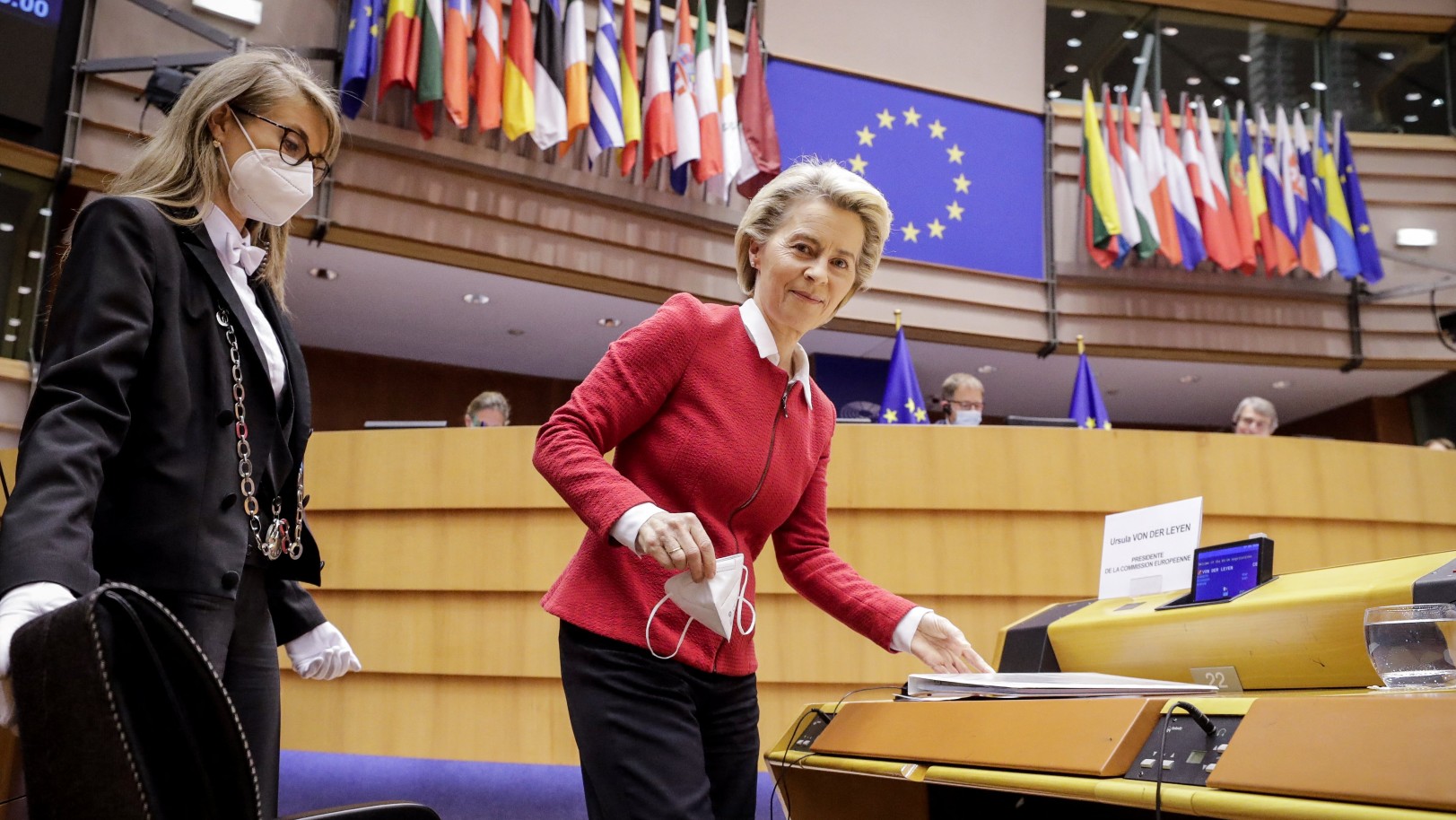‘Final step of Brexit’: can the EU and UK now move on?
Ratified trade deal comes with ‘real teeth’ warns Ursula von der Leyen

A free daily email with the biggest news stories of the day – and the best features from TheWeek.com
You are now subscribed
Your newsletter sign-up was successful
The European Parliament has approved the post-Brexit trade deal between the EU and UK, marking what Boris Johnson has called the “final step in a long journey”.
MEPs backed the Trade and Cooperation Agreement, which has been provisionally in force since 1 January, by 660 votes to just five.
The prime minister said it was now “time to look forward to the future”, prompting speculation about how the country’s relationship with the EU might unfold.
The Week
Escape your echo chamber. Get the facts behind the news, plus analysis from multiple perspectives.

Sign up for The Week's Free Newsletters
From our morning news briefing to a weekly Good News Newsletter, get the best of The Week delivered directly to your inbox.
From our morning news briefing to a weekly Good News Newsletter, get the best of The Week delivered directly to your inbox.
‘Positive spirit’
Cabinet minister Lord Frost, who served as the UK’s chief negotiator for Brexit from 2019 to 2020, said the country would always aim to act in a “positive spirit”, says the Express, but added “we will also always stand up for our interests when we must - as a sovereign country in full control of our own destiny”.
Meanwhile, European Parliament President David Sassoli tweeted that the agreement announced yesterday “lays the foundation for a new EU-UK relationship”.
“It will not be as frictionless as what came before,” he admitted, “but it is in all our interests to make it work.”
A free daily email with the biggest news stories of the day – and the best features from TheWeek.com
‘New Brexit war’
But The Telegraph’s Allister Heath predicts a “new Brexit war” is on the horizon. For months, Britain has been “strangely subdued” over issues such as the threat by Brussels to block vaccine shipments, the “demonisation” of AstraZeneca, the ban on shellfish exports, threats to disrupt the City and the “tone-deaf approach to Northern Ireland”.
But now that European parliamentarians have signed off the trade deal, “Britain’s fightback is set to safely commence”, says Heath.
Despite a warm welcome for the deal from European Commission President Ursula von der Leyen, she also warned that it comes with “real teeth” and that the EU would use those teeth if necessary, reports the BBC.
The broadcaster’s Chris Morris says the deal “certainly hasn’t solved everything” and that “monitoring and implementing what has been agreed, in a complex network of committees, will also be a constant feature of the new relationship”.
‘Democratic solidarity is necessary’
British industry groups want Westminster to now take quick steps to “normalise” the trading relationship with the EU, says the Financial Times. Tony Danker, director-general of the CBI, told the newspaper: “The next phase is normalising relations between the UK and EU in order to smooth trade and maximise the benefits of the new economic partnership.”
The Times editorial board agrees that, although the formalities of Brexit are now complete, many issues remain to be resolved, the “most pressing” of which is a workable arrangement for the Northern Ireland border.
“Negotiations will be hampered by a prevailing mutual suspicion,” says the newspaper. “That said, it is in the interests of Britain and the EU to reset this fractious state of relations. Boris Johnson’s government needs to demonstrate a sense of trustworthiness that it has not so far conveyed, to which the EU should respond with compromise.”
It concludes that the prize for a “new entente is more than economic”. It warns: “When Russia and China are engaging in external aggression, democratic solidarity is necessary.”